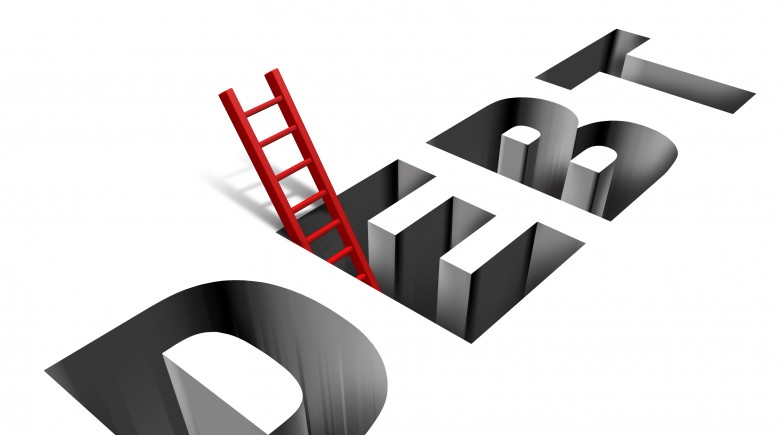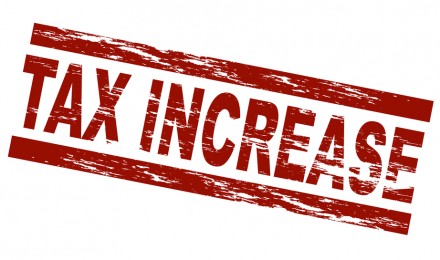Getting a handle on your debts isn’t always the easiest thing to do. Maybe you’re tired of phone calls from your creditors, and perhaps you’ve received a few collection letters. It doesn’t take much to get into debt, but with regards to digging yourself out of debt, it can take years. And despite your planning and hard work, you may see very little progress.
You’re not alone. And like most people, you have choices. Debt isn’t going to disappear overnight, and depending on how much you owe, paying more than your minimum each month isn’t going to cut it. You need to take a different approach and a debt consolidation might be the answer.
Debt consolidation can put you on the right path. It’s the process of combining your outstanding balances into one payment or loan, thus eliminating multiple creditors. There’s less to juggle each month, plus a consolidation often results in better terms. For many, it’s the light at the end of the tunnel. How do you know if consolidation is right for you?
1. Paying high interest rates
What is the interest rate on your credit cards? Rates can vary – as high as 20%. The higher your interest rate, the harder it is to reduce your debt each month. This is because most of your payments will go toward your interest charges, which barely decreases your principal. A debt consolidation might be able to fix this. For this to happen, the rate on the debt consolidation has to be cheaper than the interest rate on your credit cards.
2. Can’t afford your monthly payments
A lower interest rate not only impacts how much you pay in interest, but how much you pay each month. Ask yourself, am I able to afford my minimum payments each month? If it’s a struggle every month and you’re close to defaulting, a consolidation can get you on track.
3. You’re on the verge of bankruptcy
A bankruptcy may seem like the only way out. However, before you tarnish your credit history for the next seven to 10 years, consider whether consolidation can help. Think of consolidation as your fresh start. You’ll receive new terms, a better rate and a lower payment – just the things you need to get your debt under control.
Options for Debt Consolidation
A debt consolidation isn’t only for people with good credit and those who own a home. There are options available to everyone regardless of their financial standing.
- Balance transfer credit card. Maybe you’re able to keep up with your credit card payments but tired of paying a high rate. Transferring your balance to a low-rate or a 0% interest credit card can jump start your debt elimination. The less you pay in interest, the faster you’re able to put a dent in your principal balance.
- Home equity options. Borrow against your equity and use funds to pay off your debts. Options include a home equity loan, a home equity line of credit or a cash out refinance.
- Debt consolidation loan. If you have other collateral, such as a car title, use the car as collateral for a personal debt consolidation loan.
- Credit/debt counseling. This option can work if you don’t have collateral. Credit and debt counseling agencies do not issue loans. They combine your accounts into one bill, and then work with your creditors to negotiate better rates and terms.
Getting a handle on your debts isn’t always the easiest thing to do. Maybe you’re tired of phone calls from your creditors, and perhaps you’ve received a few collection letters. It doesn’t take much to get into debt, but with regards to digging yourself out of debt, it can take years. And despite your planning and hard work, you may see very little progress.
You’re not alone. And like most people, you have choices. Debt isn’t going to disappear overnight, and depending on how much you owe, paying more than your minimum each month isn’t going to cut it. You need to take a different approach and a debt consolidation might be the answer.
Debt consolidation can put you on the right path. It’s the process of combining your outstanding balances into one payment or loan, thus eliminating multiple creditors. There’s less to juggle each month, plus a consolidation often results in better terms. For many, it’s the light at the end of the tunnel. How do you know if consolidation is right for you?
1. Paying high interest rates
What is the interest rate on your credit cards? Rates can vary – as high as 20%. The higher your interest rate, the harder it is to reduce your debt each month. This is because most of your payments will go toward your interest charges, which barely decreases your principal. A debt consolidation might be able to fix this. For this to happen, the rate on the debt consolidation has to be cheaper than the interest rate on your credit cards.
2. Can’t afford your monthly payments
A lower interest rate not only impacts how much you pay in interest, but how much you pay each month. Ask yourself, am I able to afford my minimum payments each month? If it’s a struggle every month and you’re close to defaulting, a consolidation can get you on track.
3. You’re on the verge of bankruptcy
A bankruptcy may seem like the only way out. However, before you tarnish your credit history for the next seven to 10 years, consider whether consolidation can help. Think of consolidation as your fresh start. You’ll receive new terms, a better rate and a lower payment – just the things you need to get your debt under control.
Options for Debt Consolidation
A debt consolidation isn’t only for people with good credit and those who own a home. There are options available to everyone regardless of their financial standing.
- Balance transfer credit card. Maybe you’re able to keep up with your credit card payments but tired of paying a high rate. Transferring your balance to a low-rate or a 0% interest credit card can jump start your debt elimination. The less you pay in interest, the faster you’re able to put a dent in your principal balance.
- Home equity options. Borrow against your equity and use funds to pay off your debts. Options include a home equity loan, a home equity line of credit or a cash out refinance.
- Debt consolidation loan. If you have other collateral, such as a car title, use the car as collateral for a personal debt consolidation loan.
- Credit/debt counseling. This option can work if you don’t have collateral. Credit and debt counseling agencies do not issue loans. They combine your accounts into one bill, and then work with your creditors to negotiate better rates and terms.







